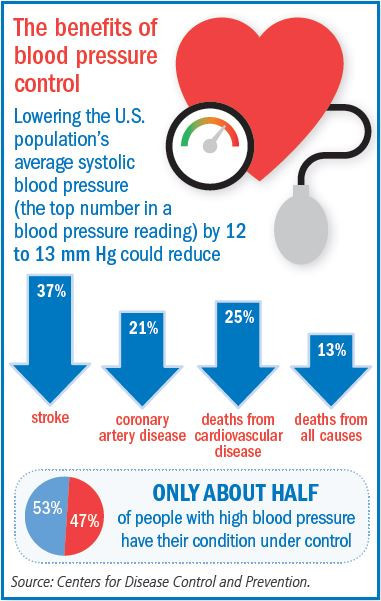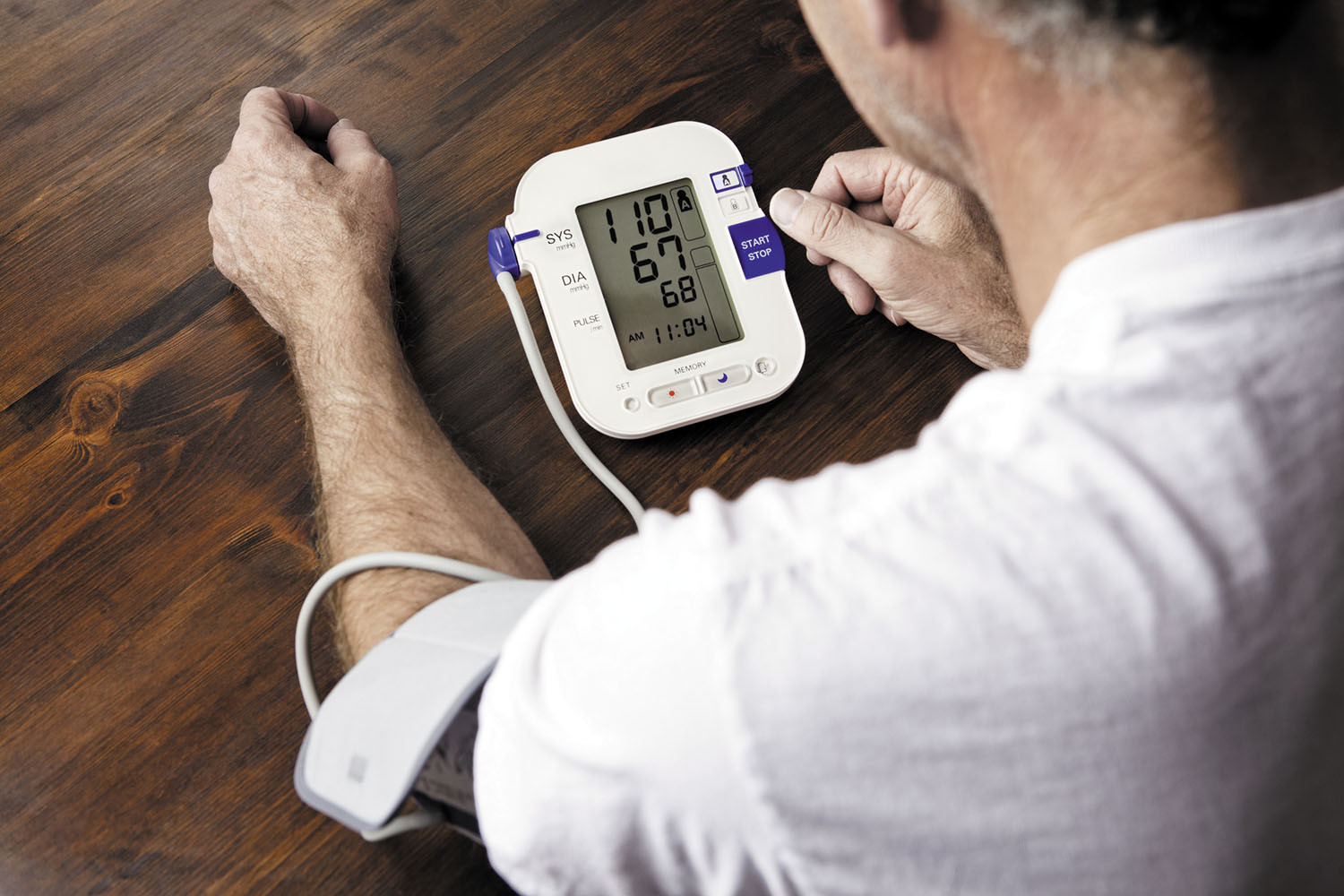
Daily cup of coffee may prevent afib recurrence

Gene-editing therapy lowers harmful blood fats in early study

What is EMDR therapy, and who can it help?

GLP-1 drugs versus bariatric surgery for treating obesity

Trying to lose weight? Be careful not to lose muscle

Two dumbbells, three exercises, and 10 minutes

Easing the emotional burden of IBS

Modify your push-ups to meet your fitness level

What is long QT syndrome?

Stroke survivors may benefit from very low LDL levels
Controlling Your Blood Pressure Archive
Articles
A look at diastolic blood pressure
When it comes to managing blood pressure, doctors tend to focus on lowering the top (systolic) number, but the bottom (diastolic) number also plays an essential role in heart health. Diastolic pressure is the pressure during the resting phase between heartbeats, and helps coronary vessels supply oxygen to the heart muscle. It’s important to keep both blood pressure numbers low per guidelines, but research suggests the diastolic number should not fall too low.
Coffee and your blood pressure
Switching to a salt substitute may reduce stroke risk
What to do when your blood pressure won’t go down
Over-the-counter drugs that can boost blood pressure
Aerobic exercise helps hard-to-treat high blood pressure
Breathing your way to better health
Some blood pressure drugs are linked with better memory
Breath training may lower blood pressure

Daily cup of coffee may prevent afib recurrence

Gene-editing therapy lowers harmful blood fats in early study

What is EMDR therapy, and who can it help?

GLP-1 drugs versus bariatric surgery for treating obesity

Trying to lose weight? Be careful not to lose muscle

Two dumbbells, three exercises, and 10 minutes

Easing the emotional burden of IBS

Modify your push-ups to meet your fitness level

What is long QT syndrome?

Stroke survivors may benefit from very low LDL levels
Free Healthbeat Signup
Get the latest in health news delivered to your inbox!
Sign Up











